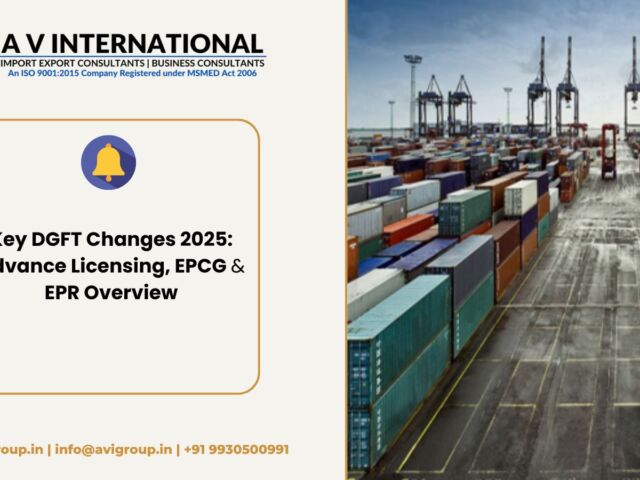Procedure for Quota Allocation and Export of Broken Rice on Humanitarian and Food Security Grounds
The Directorate General of Foreign Trade (DGFT) has recently issued a trade notice marking the revised export policy for broken rice.
Background:
On September 8, 2022, the Government of India Changed the export policy of broken rice from “Free” to “Prohibited” through No.31/2015-2020. However, on 24th May 2023 through notification No 07/2023, export of broken rice on was allowed on humanitarian and food security grounds based on requests received from certain countries.
With regards to the same, the requests received from the Government of Senegal, Gambia, and Indonesia has been approved and the applications for export of broken rice to these countries are invited. To ensure objectivity and transparency, the allocation process has been defined in the trade notice as below:
The mode of allocation:
- Application Submission: Exporters need to submit their applications through an online portal.
- Eligibility: Only exporters who have previously exported rice (all varieties) to Senegal, Gambia, and Indonesia within three years preceding the fiscal year in which broken rice was prohibited are eligible to apply.
- Minimum Threshold: Allocation will be made with a minimum threshold of 8000 MT by sea. Exporters must apply for a quantity greater than the minimum threshold to be considered.
- Pro-rata Allocation: Quota allocation will be based on the pro-rata average export of rice (all varieties) to the respective countries during the three years preceding the fiscal year in which broken rice was prohibited or the quantity applied for, whichever is lower, subject to the minimum threshold.
- Reallocation: Any unutilized quantity will be reallocated on a pro-rata basis to eligible exporters.
Application Process for Export Authorization:
Exporters who have been allocated the quota of broken rice need to follow the outlined procedure for export authorization:
- Online Application: Exporters must apply online through DGFT’s ECOM system for Export Authorizations Non-SCOMET Restricted Items. Hard copies of the application should not be sent via mail or post.
- Validity: The validity of the Export Authorization will extend until December 31, 2023.
- Application Period: Only online applications filed between June 21, 2023, and June 30, 2023, will be considered.
- Required Documents: Exporters must submit export data for the three years preceding the fiscal year in which broken rice was prohibited along with their application.
DGFT
Legal
Company Secretarial
DGFT Notifications
Others
Recent Posts
- Top Export Compliance Mistakes: DGFT Advance Authorization, EPCG & CPCB (2025 Guide)
- Environmental Clearance CPCB Quick Guide for Exporters
- DGFT e-BRC Rule 2025: Key Update for Advance Authorization & EPCG Holders
- Key DGFT Changes 2025: Advance Licensing, EPCG & EPR Overview
- DGFT 2025 Updates: Key Changes for Advance Authorization License & EPCG Authorization Licence Holders
- DGFT Notifies 3 New SIONs: A-3690, A-3691 & A-3692
- DGFT allocates 5841 MT for Sugar Export
- DGFT Eases Export Rules for Pharma Grade Sugar – Key Changes in ANF-2N Form
FeATURED ARTICLES
Top Export Compliance Mistakes: DGFT Advance Authorization, EPCG & CPCB (2025 Guide) Exporting in India can feel like a legal…
Environmental Clearance CPCB: Quick Guide for Exporters If you’re an Indian exporter or manufacturer working under schemes like the Advanced…
DGFT e-BRC Rule 2025: Key Update for Advance Authorization & EPCG Holders The Directorate General of Foreign Trade (DGFT) has…
Key DGFT Changes 2025: Advance Licensing, EPCG & EPR Overview DGFT Updates 2025: What Exporters and Importers Should Know About…





